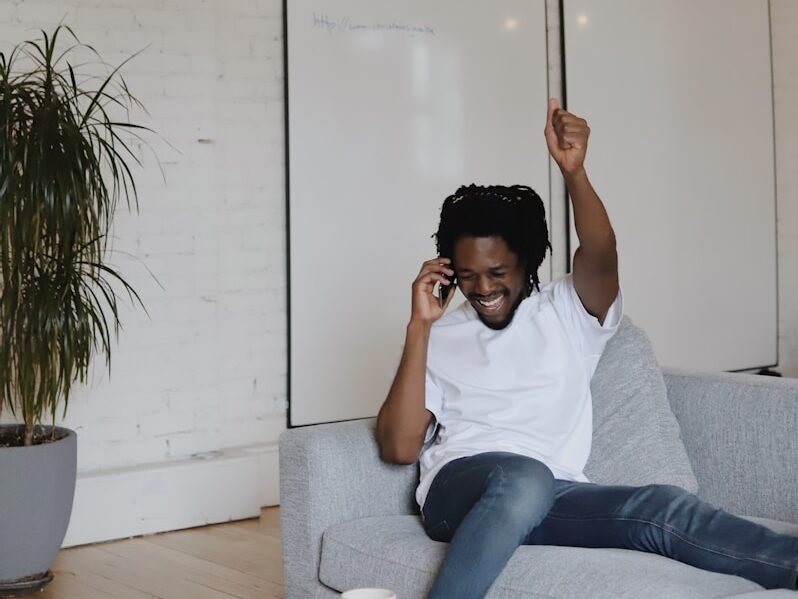Lifestyle
15 Common Behaviors That Are Driven by Insecurity

Insecurity doesn’t always announce itself. Often, it hides beneath confidence, politeness, control, or humor. These behaviors might seem harmless or even admirable, but many of them are subtle ways we try to protect fragile parts of ourselves. Here’s how insecurity quietly shapes the way people act, often without even realizing it.
Constantly Needing Validation

This isn’t about wanting occasional recognition—it’s about needing frequent reassurance to feel okay. Insecure individuals often crave repeated praise, social approval, or “likes” to fill an emotional void. The problem is that external validation never lasts. They may ask, “Did I do a good job?” over and over again, not because they doubt the task, but because they doubt themselves.
Overexplaining Yourself

Insecurity often makes people feel like they have to defend their every choice. They’ll add unnecessary justifications, apologize repeatedly, or provide long-winded explanations to avoid being judged or misunderstood. At its core, this stems from a belief that people won’t accept their thoughts, actions, or presence unless every detail is accounted for.
Bragging or Name-Dropping

This behavior can look like confidence on the surface, but it often reveals a fragile ego beneath. People who constantly highlight achievements or connections are usually trying to prove their worth. It’s less about pride and more about fear: “If I don’t impress you, maybe you won’t respect me.” The need to overcompensate often signals internal doubt.
Being Hyper-Critical of Others

Judgment is a defense mechanism. By focusing on others’ flaws, insecure people deflect attention from their own. It provides a momentary boost to self-esteem by comparison. Whether it’s nitpicking appearance, success, or decisions, the underlying motivation is usually discomfort with their own perceived inadequacy.
Never Admitting You’re Wrong

For someone battling insecurity, being wrong doesn’t just feel like making a mistake; it also feels like being exposed. Admitting fault can threaten their entire sense of worth. So, instead, they double down, blame others, or twist narratives to protect their ego. It’s not about truth—it’s about survival.
Seeking Attention in Subtle or Dramatic Ways

Whether it’s constant selfies, vague status updates begging for concern, or dominating conversations with personal stories, attention becomes a substitute for affection. Insecure individuals often seek to be seen because they secretly fear being invisible, unimportant, or unloved unless they perform for connection.
Avoiding Conflict at All Costs

While peacekeeping sounds noble, excessive avoidance often reveals deep insecurity. People may fear rejection, confrontation, or being seen as “too much.” Instead of expressing how they feel or standing up for themselves, they bury their resentment and agree to things that harm their well-being just to be liked.
Taking Everything Personally

Insecure people are highly sensitive to perceived slights. A neutral comment or minor disagreement can trigger deep emotional responses because their self-worth is already on shaky ground. Instead of hearing “I disagree,” they hear “You’re not smart.” Every interaction becomes a mirror reflecting their inner doubts.
Constantly Comparing Yourself to Others

Comparison is insecurity’s favorite pastime. Whether it’s appearance, success, relationships, or popularity, those who feel “not enough” often measure their worth by how others are doing. But this mindset never ends well. There will always be someone richer, happier, or more admired. And instead of motivation, it often breeds resentment or despair.
Trying to Be Liked by Everyone

Being adaptable is a skill, and shapeshifting to avoid rejection is a sign of insecurity. People who crave universal approval often hide parts of themselves to fit in, say yes when they mean no, and stay neutral even when something matters deeply. Their fear of disapproval overrides authenticity, and over time, they lose sight of who they are.
Micromanaging or Controlling Others

Control is often mistaken for leadership. In reality, it’s sometimes a mask for insecurity. If someone is constantly correcting you, watching over your shoulder, or needing things done “their way,” it may be because unpredictability makes them feel unsafe. Their sense of stability depends on controlling outcomes and people.
Downplaying Your Achievements

False modesty isn’t always about humility. It can come from a fear of being exposed or criticized. Insecure people may brush off their success with lines like “It was nothing” or “I just got lucky” because, deep down, they don’t feel worthy of praise. They fear that if they own their power, others might take it away.
Laughing at Yourself Too Much

A little self-deprecating humor can be charming, but constant self-mockery often hides a belief that you’re not truly lovable or valuable. If you insult yourself before others can, it feels like control. But over time, this becomes a habit of reinforcing low self-worth, even in jest.
Sabotaging Healthy Relationships

Insecure individuals sometimes push away the very people they care about most. They may create distance, pick fights, or test boundaries—not out of malice but because they fear being abandoned. If they sabotage things first, at least they’re in control of the ending. It’s a tragic cycle rooted in fear, not malice.
Needing to “Win” Every Interaction

Some people can’t stand being wrong, interrupted, or second-best—even in trivial situations. This constant need to prove intelligence, wit, or superiority often stems from deep insecurity. If they’re not seen as “the best” in the room, they feel invisible. The need to dominate masks a fear of being overlooked.

